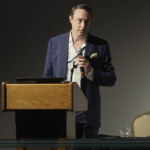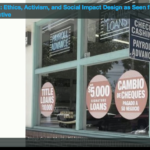
JEFFREY GREGER
Varo
[s2If is_user_logged_in()]DOWNLOAD PDF
[/s2If]
[s2If current_user_can(access_s2member_level1)]
[/s2If]
The US banking industry has a long history of excluding, exploiting, or simply ignoring low-income communities, recent immigrants, and racial minorities. In this paper, I share my experiences creating a community of practice where employees of a rapidly-growing banking startup can identify and confront the ethical challenges facing the financial technology (fintech) industry. This community is informed by insights from four years of activism and anthropological research that I conducted with small teams of service designers and ethnographers developing financial services for and with low- to moderate-income communities around the world. Through this research, I identified three institutional logics—insularity, decontextualization, and technological hubris—which limit efforts to build a more inclusive, equitable banking system. These logics hold the potential to lead well-intentioned organizations, and...


